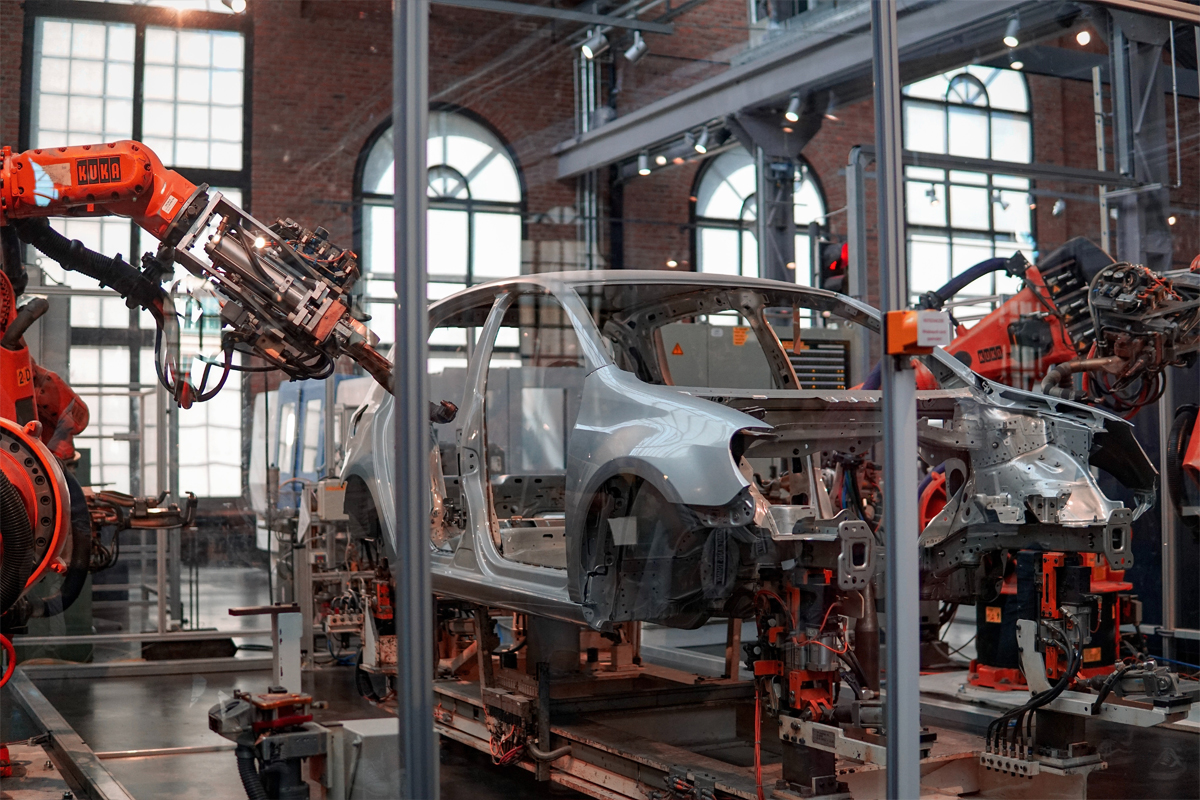The UK automotive industry is a vital part of the UK economy worth more than £78.9 billion turnover and adding £15.3 billion value to the UK economy.
With some 180,000 people employed directly in manufacturing and more than 864,000 across the wider automotive industry, it accounts for 13% of total UK export of goods, worth £44 billion, and invests £3 billion each year in automotive R&D.
More than 30 manufacturers build in excess of 70 models of vehicle in the UK supported by 2,500 component providers and some of the world’s most skilled engineers.
Over 1.3 million cars, 78,270 commercial vehicles and 2.5 million engines were built in the UK in 2020.
Facts
- Eight out of 10 cars produced in the UK are exported overseas to 160 different markets worldwide.
- 6 mainstream car manufacturers in the UK
- 11 Engine manufacturers based in the UK.
- 20 R&D centres
- 2,400 Tier suppliers
- 60 plus Specialist Car Manufacturers
- 8 Bus and Coach manufacturers
- 5 Design Centres
- 7 Major Premium and Sports Cars Manufacturers
- 4 Commercial Vehicle Manufacturers
Business, as usual, is no longer an option for OEMs. Given the unprecedented uncertainty facing the automotive industry, one thing is sure: automotive OEMs and all the tier manufacturers must recalibrate their business strategies if they plan to survive in a COVID-19 era.
The reality is that the global automotive market was already feeling the impact of disruption Pre-COVID-19 with the convergence of connected, autonomous, electrification and shared mobility technologies shifting the industry.
Not to mention an industry that is very cyclical and was already in the middle of a downturn cycle in terms of sales.
Now, a new automotive revolution of momentous proportion is underway and fuelling some key trends that are being accelerated by the pandemic.
Innov8 Synergy Talent Management has looked at a couple of trends expected to impact the market outlook and propel the industry forward in the months ahead.
Supply Chain Diversification
As automotive brands reposition themselves for recovery, they are rethinking their global supply chains. Traditionally, OEMs rely heavily on just-in-time production. With the onset of COVID-19, supply chains were immediately hit hard, especially in China where almost two thirds of auto production was affected by the country’s shutdown.
With a shortage of parts, car companies are looking to diversify their supply chains and offer opportunities to other countries like India and Mexico.
The organisations that will emerge the strongest post COVID-19 will need to build long-term resilience in their supply chains to better anticipate risks and protect against future disruptions.
Research and Development (R & D) Reduction
Nearly all automotive and suppliers are expected to reduce R & D spending due to the trifecta effect of a pandemic, declining sales and production halts.
R & D investments are estimated to be delayed by just over four months on average, with connected manufacturing and autonomous vehicle technologies being delayed the most, as emphasis shifts to focus on alternative propulsion technologies.
That comes as no surprise as the industry looks to preserve cash and other “non-critical” expenses.

